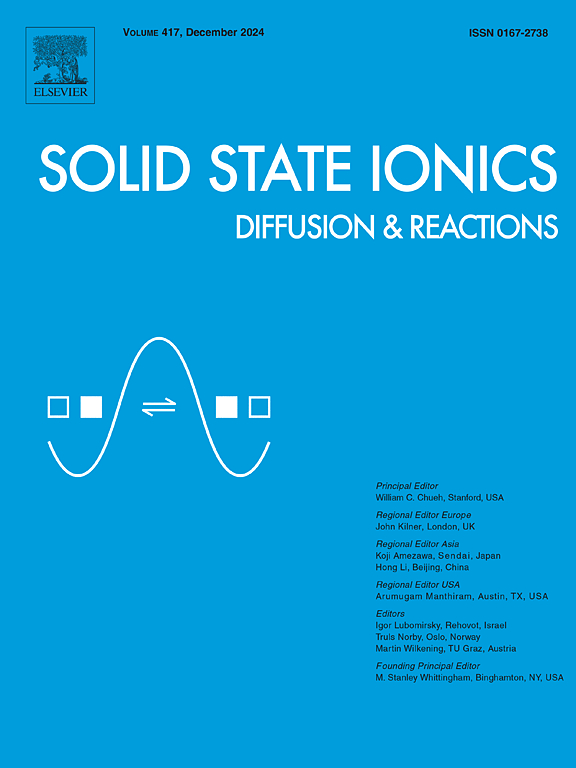Investigation of the effects of magnetic field on the stability and transport properties of lithium ions
IF 3
4区 材料科学
Q3 CHEMISTRY, PHYSICAL
引用次数: 0
Abstract
Lithium-ion battery is considered to be the most ideal energy storage material due to its high theoretical specific capacity and low reduction potential. However, the lithium dendrites generated during the charge and discharge cycling hinder its further application. Using density functional theory (DFT) and molecular dynamics methods, the lithium ions transport mechanism on the cathode of LiFePO₄ battery is studied. The influence of magnetic field on the stability and transport properties of lithium-ion battery surface is analyzed. The magnetic field could play a crucial role in enhancing the stability and transport of lithium ions at the interface by promoting a more orderly charge distribution and reinforcing the interfacial bonding. The results show that the magnetic field could effectively enhance the transport of lithium ions. When the magnetic induction intensity is 0.6 T, the surface stability of the electrode material could be effectively promoted, and the electrochemical performance of the battery is the best. In addition, after the introduction of magnetic field, the ion transport properties of the battery are improved. This leads to a reduction in the lithium-ion concentration at the anode, which in turn weakens the driving force and effectively inhibits the formation of lithium dendrites. This study could provide a deeper insight into the effects of magnetic field on lithium-ion battery compared to previous research, filling a gap in the existing knowledge base.
磁场对锂离子稳定性和输运性质影响的研究
锂离子电池具有理论比容量高、还原电位低的特点,被认为是最理想的储能材料。然而,在充放电循环过程中产生的锂枝晶阻碍了其进一步的应用。采用密度泛函理论(DFT)和分子动力学方法,研究了锂离子在lifepo4电池正极上的输运机理。分析了磁场对锂离子电池表面稳定性和输运性能的影响。磁场可以通过促进更有序的电荷分布和增强界面键合来增强锂离子在界面上的稳定性和输运。结果表明,磁场能有效增强锂离子的输运。当磁感应强度为0.6 T时,电极材料的表面稳定性得到有效提升,电池的电化学性能最佳。此外,引入磁场后,电池的离子输运性能得到改善。这导致阳极处锂离子浓度降低,从而削弱了驱动力,有效抑制了锂枝晶的形成。与以往的研究相比,本研究可以更深入地了解磁场对锂离子电池的影响,填补了现有知识库的空白。
本文章由计算机程序翻译,如有差异,请以英文原文为准。
求助全文
约1分钟内获得全文
求助全文
来源期刊

Solid State Ionics
物理-物理:凝聚态物理
CiteScore
6.10
自引率
3.10%
发文量
152
审稿时长
58 days
期刊介绍:
This interdisciplinary journal is devoted to the physics, chemistry and materials science of diffusion, mass transport, and reactivity of solids. The major part of each issue is devoted to articles on:
(i) physics and chemistry of defects in solids;
(ii) reactions in and on solids, e.g. intercalation, corrosion, oxidation, sintering;
(iii) ion transport measurements, mechanisms and theory;
(iv) solid state electrochemistry;
(v) ionically-electronically mixed conducting solids.
Related technological applications are also included, provided their characteristics are interpreted in terms of the basic solid state properties.
Review papers and relevant symposium proceedings are welcome.
 求助内容:
求助内容: 应助结果提醒方式:
应助结果提醒方式:


